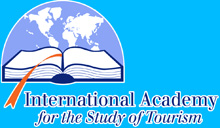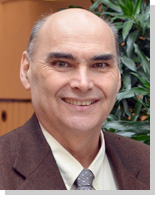

|
President's Message
Greetings, and I hope everybody has had a healthy and happy holiday season. Your executive has been busy on a number of fronts, as you can read from the various reports. The 2017 conference is shaping up nicely. We hope to do things a little bit differently this time by organizing a series of sessions that will lead to specific outcomes that can be disseminated across the broader academic community. In this way, the Academy can demonstrate its leadership in some critical areas. I would like to thank the ad hoc membership subcommittee comprised of Sara Dolnicar, Dick Butler, Rick Perdue and Bill Gartner for their diligent work in discussing and preparing a document to look at a range of membership issues. This document was discussed at length by the executive and, for the most part, the recommendations were endorsed. In brief, the following recommendations were made and endorsed:
A number of other issues were discussed, but no decision was made. One of the more contentious issues is some type of weighted voting system for prospective Fellows. The executive raised the suggestion that the votes from Fellows who attend our meeting be weighted more heavily than those who do not attend. The rationale is that attendees have a chance to get to know the candidate and can make an informed decision, whereas some of the Fellows who do not attend the meeting may not be familiar enough to make a fully informed decision. Another issue was to consider increasing the membership cap (possibly to 100 Fellows), given the dramatic growth in our field of study. The third issue relates to the more delicate topic of how to deal with inactive Fellows (as opposed to Emeritus Fellows). The bylaws provide for the termination of membership should Fellows fail to meet certain performance criteria. Personally, I oppose termination. Election to the Academy is a recognition of a lifetime contribution to the field of study. Once elected, a Fellow should retain membership for the rest of his or her life, unless the Fellow chooses to resign or does something egregious that brings the Academy into disrepute. Having stated this, though, it is also expected that Fellows will remain active within the Academy. Yet, a number have been inactive for number of years (failing to attend conferences on a regular basis, failing to vote on a regular basis and making minimal or no contributions elsewhere). Their lack of involvement creates some administrative challenges and hurts the dynamism of the organization. Inactive Fellows are very different than Emeritus Fellows, for a number of Emeritus Fellows remain very active. Some form of accommodation needs to be made to allow inactive Fellows to remain in the Academy, while at the same time limiting their involvement in certain matters. I would certainly like to hear Fellows' views on these matters. Our outreach programs are continuing. An updated list of journals was posted on TRINET under the Academy's banner. Fellows who are editors in chief of journals have also collaborated to produce a simple set of suggestions of what to do and what to avoid to enhance the chances of Journal articles being excessive. At the time of writing, or brochures being finalized be posted on TRINET. Also, we are finalizing agreements with publishers on posting some classic papers on our revised website. This initiative will be trialed over the coming semester. Could any Fellow who wishes to dissipate in the trial, nominate a journal article in which they were to leave or they only author. Finally, the modified website is almost ready. It has taken longer than expected but, hopefully, the results will be worth it. Best wishes,
Bob
|
| President's Message | |
| Member's Activities | |
| Announcements | |
| Call for Papers | |
| Fellow's Visit to the Academy Office | |
